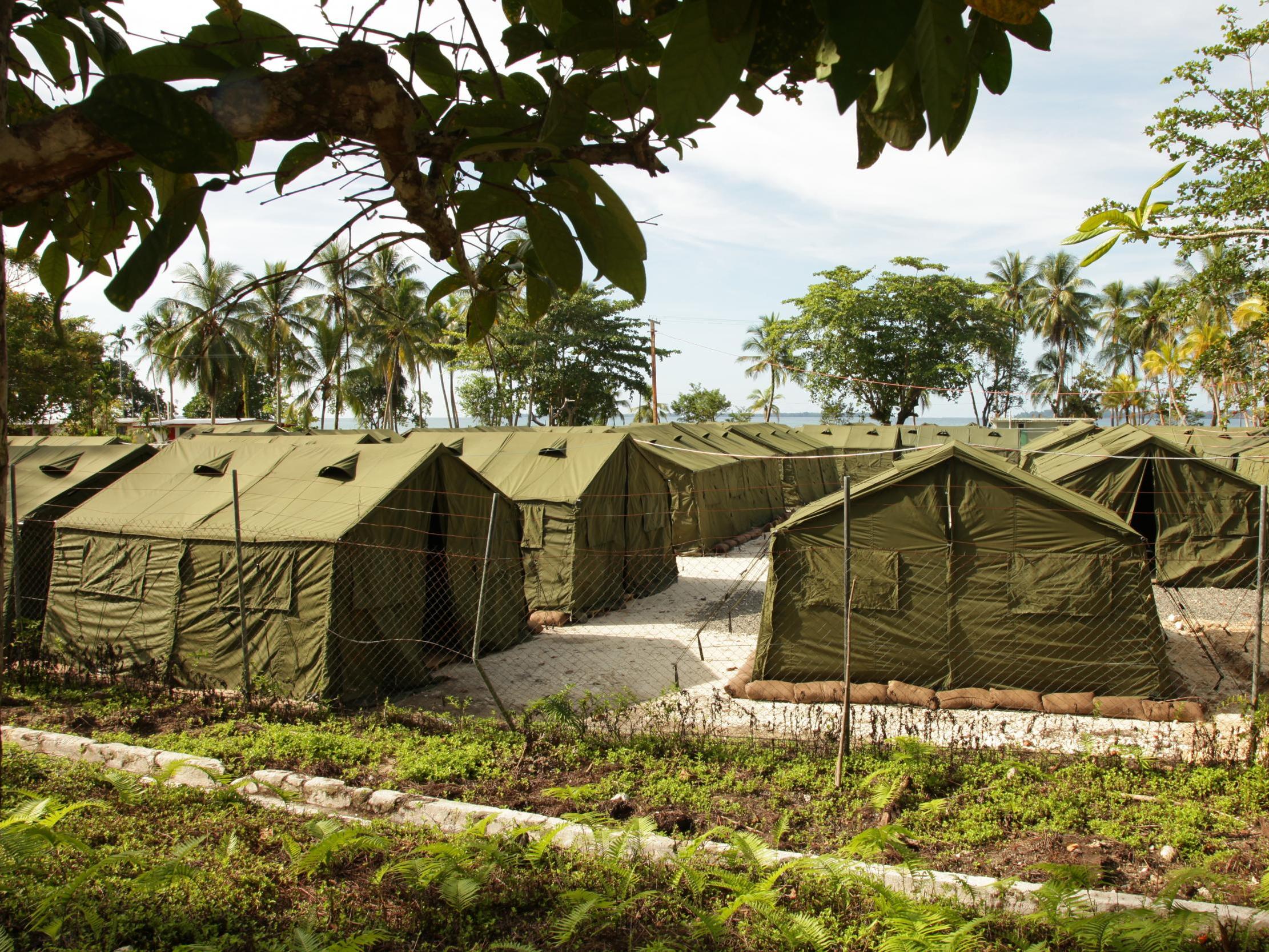Australia bans doctors from sending seriously ill asylum seekers on island detention centres to mainland
Move ‘puts those most sick and vulnerable at risk,’ says Doctors Without Borders director

Doctors no longer have the power to send ill asylum seekers on island detention centres to Australia for treatment after the country’s Senate repealed a previous bill.
Those who cannot get care they need on the remote centres can still come to the mainland if the minister for home affairs approves the request.
Doctors Without Borders (MSF) said the move “puts those most sick and vulnerable at risk”.
“Imagine if your healthcare, the care of your children, was going to be placed in the hands of your local MPs and not your local doctor,” said Paul McPhun, the NGO’s Australia director. “How would you feel about that?”
Refugees on the island detention centres can either return to their home countries, resettle in Papua New Guinea or Nauru, or travel to another country that grants them asylum.
The United Nations has repeatedly criticised Australia’s detention centres, insisting they lack adequate medical and mental health care.
Around 500 people remain on the two island centres, many suffering mental health issues after more than six years in detention, aid organisations have said.
After he was re-elected in May, Scott Morrison, Australia’s prime minister, said his government would seek to repeal the Medevac Bill, which was passed in February and gave doctors the power to send asylum seekers to Australia for medical care.
The repeal was passed in the Senate by 37 votes to 35 after weeks of negotiations.
Under Australia’s controversial immigration policy, asylum seekers intercepted at sea are sent to the island camps and cannot live in Australia as refugees, as asylum is not granted to those who arrived by boat.
Mr Morrison said the medical evacuation legislation was unnecessary and undermined Canberra’s border policy, designed to discourage asylum seekers from undertaking dangerous sea voyages to Australia.
He also said Australia provided significant medical aid to the detention centres.
Mr McPhun from MSF raised concerns about the “long-lasting sustained mental harm” caused by “keeping [people] in offshore processing facilities”.
“All of these asylum seekers and refugees need to be put in a safe environment where they can go through a thorough process of recovery with the appropriate services available to them,” he said.
Suicide attempts by refugees on a Papua New Guinea island spiked after Mr Morrison’s conservative government was re-elected in May, according to asylum seekers and police.
Ian Rintoul, spokesman for Refugee Action Coalition, said at the time: “Offshore detention is slowly strangling the life out of its victims.”
Additional reporting by Reuters
Join our commenting forum
Join thought-provoking conversations, follow other Independent readers and see their replies
Comments
Bookmark popover
Removed from bookmarks